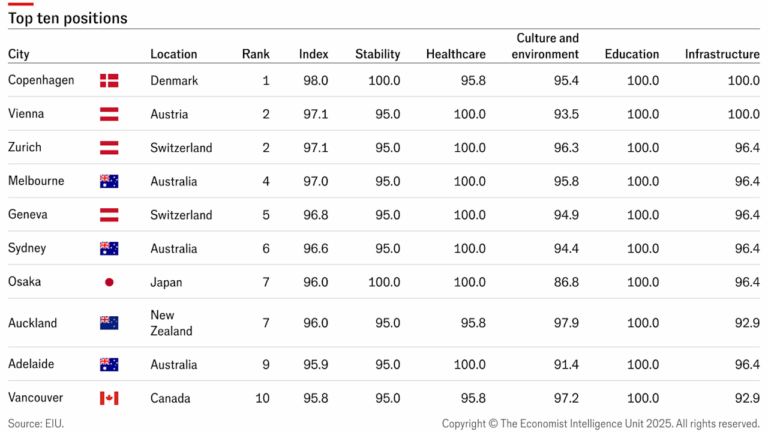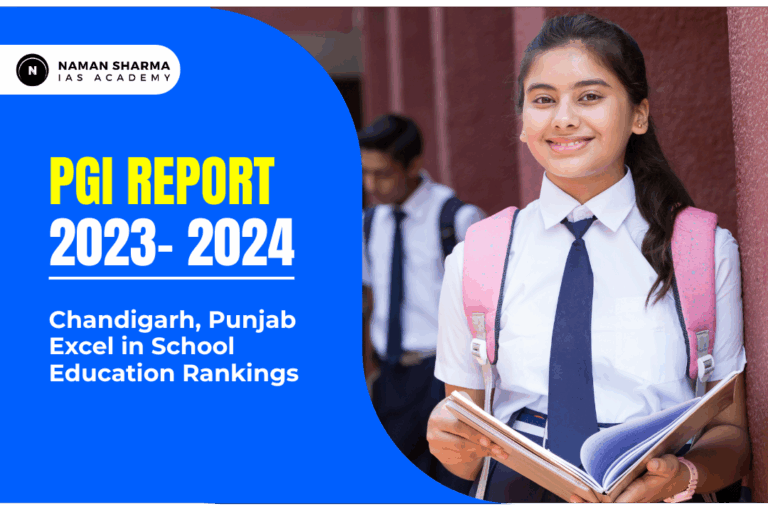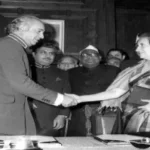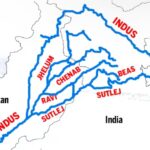India at the G7: Amplifying the Voice of the Global South
Why in the News?
In June 2025, Prime Minister Narendra Modi arrived in Calgary, Alberta, to participate in the G7 Outreach Summit hosted by Canada. During his visit, PM Modi emphasised that India will focus on highlighting the concerns and developmental priorities of the Global South.
- The summit, themed around “Protecting our communities around the world,” “Building energy security and accelerating the digital transition,” and “Securing the partnerships of the future,” marks a critical juncture where India’s role as a bridge between developed nations and emerging economies is under the spotlight.
- As geopolitical tensions intensify- ranging from the ongoing Russia-Ukraine conflict and the escalating Iran-Israel tensions to debates on energy security and multilateral reform- the outreach by the Global South has become more urgent.
- Modi’s expected meetings with leaders from Ukraine, Canada, Germany, and Italy, and his prior statements supporting negotiated settlements, signal India’s strategic balancing act in a polarised global environment.
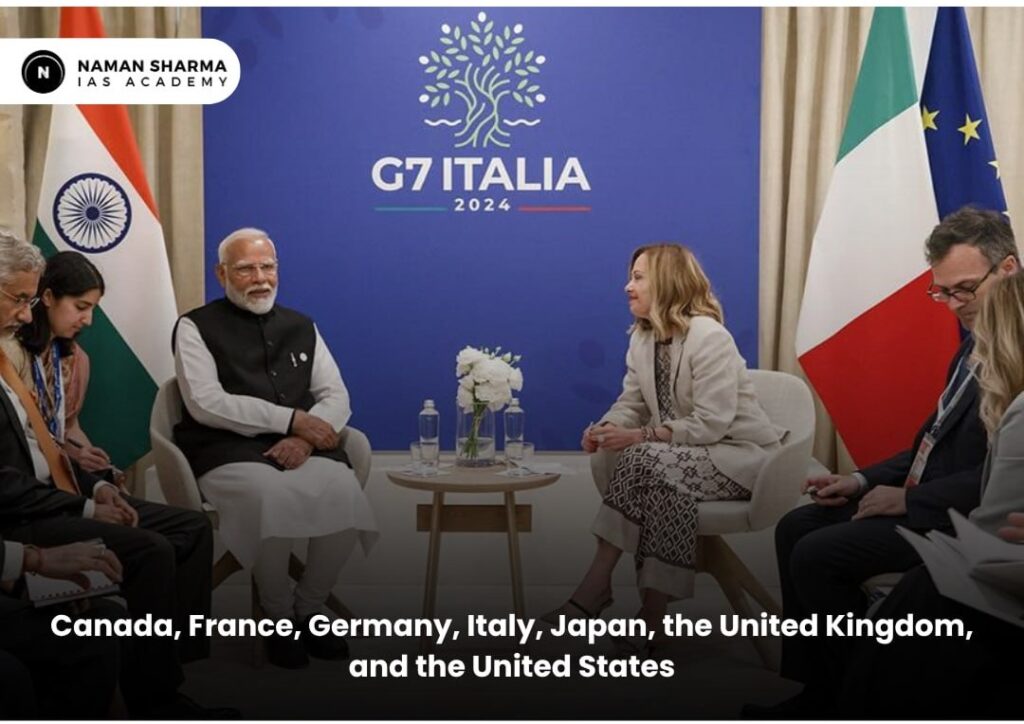
Background
What is the G7?
- The G7 (Group of Seven) is an informal bloc of seven industrialised democracies- Canada, France, Germany, Italy, Japan, the United Kingdom, and the United States Established in 1975.
- It aims to discuss and coordinate economic policy, address global security challenges, and promote liberal democratic values.
- While not a treaty-based organisation, its outcomes influence international financial institutions, trade norms, and geopolitical alignments.
- Over time, the G7 has been criticised for excluding the voices of the developing world.
- In response, the Outreach Summits were initiated, inviting countries like India, Brazil, and South Africa to represent the broader Global South and provide diverse perspectives on global challenges.
India and the G7: A Strategic Observer
- India has consistently been invited to G7 Outreach Summits, reinforcing its stature as a rising power. Its presence underscores the G7’s recognition of India’s demographic weight, technological ambitions, and pivotal role in multilateral negotiations like climate change, global taxation, and peacebuilding.
- India’s consistent foreign policy pursuit of strategic autonomy, especially in the wake of the Ukraine war and shifting energy geopolitics, has elevated its role as a “voice of moderation.”
- This year’s summit takes place amid unprecedented global flux-war, trade disruptions, climate uncertainty, and the urgency of equitable digital transitions.
Features: India’s Role at the G7 and the Voice of the Global South
Championing the Priorities of the Global South
Modi’s declaration to raise the concerns of the Global South reflects a consistent policy narrative. India has positioned itself as the diplomatic and developmental bridge between the developed and developing worlds. These priorities include:
- Climate justice and equitable energy transition
- Debt distress and financial sustainability for low-income nations
- Technology transfer and equitable digital access
- Reformed multilateralism, including UN and WTO reforms
- Access to affordable healthcare and essential medicines
Through forums like the Voice of Global South Summit and India’s G20 presidency in 2023, New Delhi has systematically articulated that sustainable solutions must be rooted in inclusivity.
Bilateral Diplomacy in a Multilateral Setting
Apart from addressing the G7 plenary, PM Modi’s bilateral engagements with leaders of Ukraine, Germany, Canada, and Italy were crucial. Most notable is his meeting with Ukrainian President Volodymyr Zelenskyy, set against the backdrop of Russia’s upcoming visit to India.
These interactions enable India to:
- Reiterate its call for a negotiated end to hostilities.
- Maintain its delicate balancing act between the West and Russia.
- Convey Indian peacebuilding interests without endorsing bloc politics.
The Modi Doctrine: Strategic Autonomy 2.0
India’s foreign policy is increasingly characterised by a doctrine of “multi-alignment.” It neither fully aligns with the West nor sides with revisionist powers like China or Russia. By attending the G7, engaging with Ukraine, and maintaining ties with Moscow, India projects:
- Diplomatic agility without ideological rigidity
- Realpolitik is grounded in civilizational and developmental ethos
- A counter-narrative to the Cold War-style binary blocs
The Shadow of Great Power Rivalries
The summit was overshadowed by U.S. President Donald Trump’s early departure amid rising military tensions in the Gulf and his call to expand the G7 into the G9, including Russia and China. Trump also claimed that excluding Russia was a “very big mistake.”
These developments reflect:
- A fractured West, uncertain about its future structure and unity
- Recurrent proposals for restructuring global platforms
- The importance of inclusive multipolarity something India strongly advocates
India’s consistent opposition to unilateralism and its push for a multipolar world order aligns with the broader Global South sentiment.
Challenges
Representation Paradox: G7 but not G20
While India represents the Global South at the G7, it does not have permanent membership in global financial governance bodies like the OECD or the UNSC. This limits the effectiveness of its advocacy.
- G7 remains an exclusive club with disproportionate global influence.
- Outreach participation lacks decision-making rights.
- True equity demands structural reforms in the Bretton Woods institutions.
Balancing Peace and Power Politics
India’s attempt to stay neutral in the Ukraine-Russia war has been appreciated by some and criticised by others. PM Modi’s bilateral with Zelenskyy is seen as a move to balance optics ahead of Putin’s expected India visit.
However, this balancing act involves risks:
- Potential diplomatic backlash from either camp
- Mixed global perception of India’s stand on human rights
- Pressure to clarify its position more explicitly
Climate Diplomacy vs. Developmental Needs
India supports energy transition but insists on climate justice. At the G7, where climate goals are often aligned with net-zero deadlines for rich nations, India’s plea for:
- Finance for loss and damage
- Technology transfer without patents
- Recognition of differentiated responsibilities
Global South Cohesion
The term “Global South” encompasses diverse economies- Brazil, South Africa, Bangladesh, Indonesia, etc., with differing interests. India’s leadership claim may face internal competition, and regional rivalries could fragment the collective voice.
Also:
- China’s Belt and Road Initiative has wooed many developing nations.
- India’s constraints (energy imports, defence deals) limit the consistency of its advocacy.
Digital Divide and Tech Sovereignty
India’s concern about fair digital transformation aligns with the G7 agenda of digital acceleration. However, barriers such as:
- Monopoly of Western Big Tech in AI and cloud infrastructure
- Inadequate cross-border data regulation
- Dependence on foreign hardware (e.g., semiconductors)
Way Forward
Institutionalising the Voice of the Global South
India should push for the formal inclusion of Global South issues in G7 communiqués, beyond token representation. Some actionable ideas:
- Annual “Global South Development Report” in G7 summits
- Establishment of a South-North Consultative Council
- Rotational co-hosting of Outreach Summits with Global South partners
This would deepen engagement and elevate Southern priorities beyond summits.
Strengthening South-South Diplomacy
India must deepen trilateral cooperation with African and Latin American countries. Examples include:
- India-Brazil-South Africa (IBSA)
- Development finance cooperation with the African Union
- Joint digital commons initiatives with ASEAN and African nations
This would create a counterweight to North-dominated narratives.
Reforming Multilateral Institutions
India should renew its push for:
- UNSC expansion with Global South representation
- Greater voice for LICs in IMF quota reforms
- WTO rule changes to protect developmental space
India’s G20 presidency had initiated this discourse, and the G7 provides a platform to continue it.
Energy Justice and Technology Partnerships
India can propose:
- A “Global South Energy Transition Fund” backed by the G7
- Shared R&D platforms for clean tech
- A patent-free vaccine/drug innovation regime for LDCs
This would align Western innovation with the needs of the South.
Promoting a Balanced Digital Order
India can play a mediating role in:
- Framing fair AI ethics regulations globally
- Encouraging open-source digital public infrastructure
- Establishing cross-border data governance frameworks
The India Stack, UPI, and Digital Public Infrastructure models offer scalable blueprints.
Conclusion
Prime Minister Modi’s participation in the 2025 G7 Outreach Summit marks a transformative moment in India’s foreign policy, where the nation is no longer just a passive invitee but an active articulator of Southern concerns. In a world marked by fragmentation and great-power rivalry, India’s call for inclusive, balanced, and justice-oriented multilateralism resonates with many.
Frequently Asked Questions (FAQ)
1. What is the G7 Summit?
The G7 (Group of Seven) is a forum of seven advanced economies—Canada, France, Germany, Italy, Japan, the UK, and the US—that meets annually to discuss global economic governance, security, climate change, and development issues.
2. Why was India invited to the G7 Summit?
India was invited as a special outreach participant due to its growing geopolitical influence, economic significance, and role as a representative of the Global South. India regularly attends G7 outreach sessions to voice the concerns of developing countries.
3. What is the ‘Global South’?
The “Global South” refers to developing and emerging economies mainly in Asia, Africa, and Latin America that share challenges like poverty, development financing, energy access, and climate vulnerability.
MAINS PRACTICE QUESTION
Question: How is India leveraging the 2025 G7 Outreach Summit to project itself as the voice of the Global South while navigating global power dynamics?
PRELIMS PRACTICE QUESTION
Q. Consider the following statements regarding India’s participation in the 2025 G7 Outreach Summit:
- The 2025 G7 Outreach Summit was hosted by Germany and focused on rebuilding multilateral trade partnerships after COVID-19 disruptions.
- India used the forum to advocate for climate adaptation finance, equitable digital governance, and reform of global institutions like the IMF and UN Security Council.
- PM Modi’s bilateral meetings during the Summit included leaders from Canada, Germany, Ukraine, and Mexico.
- India’s positioning at the Summit aligns with the principles of South-South Cooperation and strategic autonomy.
Which of the statements given above is/are correct?
Also Read : India-Australia Defence Ties

